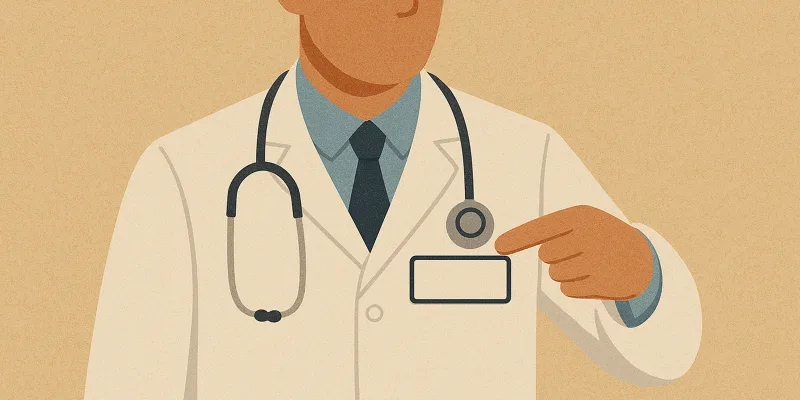
I hoisted my pregnant body up by the arms of my chair and stood, pausing to catch a breath, my lungs squashed and stomach pressed up by my 37-week belly. Popping a TUMS, I lumbered to the next patient’s room.
I sat carefully on the rolling stool and took another pause before speaking.
“Hi, I’m Dr. Bruckner. What’s worrying you about your child?”
I then sat, breaths shallow, and listened.
Medical school teaches us open-ended questions are best. We are told to avoid interrupting patients, allow them get their whole story out before we jump in—to prompt them only with nods or gentle “hmmm's” and maybe a “tell me more.”
But years of practice can erode this open style. Experience focuses our questioning to what we need to make decisions. Time pressures force impatience. A building waiting room adds urgency. We become more directive with patients. We begin to trust our own shaping of the narrative, not theirs. We just need to get to the point.
I had succumbed to this myself, especially by practicing in Acute Care settings.
But my last pregnancy brought me back to my listening roots. My elevated diaphragm and 35 extra pounds made it simply too exhausting to talk. Being quiet was much more comfortable.
At first I worried my practice would suffer: the history would be incomplete, it would take too much time, or something would be missed.
To my surprise, I didn’t stay in rooms longer (I had the nurses time me to be sure). I found my quieter style got more quickly to the heart of the problem. I didn’t interrupt with assumptions or redirections. I saved all my talking to the end, when I had the time to really formulate a thoughtful plan.
I realized how often I had made assumptions about what worried parents—what they wanted to know about their illness as well as what biases they had—and how often I had been incorrect. How I had wasted time by addressing worries that particular family did not have. In giving families more space, I was able to better tailor my evaluations and recommendations. My medical knowledge and advice were still the same, but my adjustment in style—being more relaxed, attentive, and silent—helped me respond better to the needs of each patient and their families. They seemed more satisfied and validated.
Now, it didn’t always work. Some parents needed redirection while teenagers still required a parade of yes/no questions to avoid simply answering, “Um, I dunno, it just hurts.” It wasn’t always possible in extremely emergent moments. But overall, I was convinced by the approach.
So when I returned from maternity leave, with my diaphragm allowing plenty of room to expand, refluxing no longer, I kept the quiet open style. It seems to be worth it. A recent patient survey noted: “Dr. Bruckner was a caring and good listener … wonderful bedside manner.”
I have my son, now a toddler, to thank. His growing form and all it caused—from the exhaustion, the weight, the shortness of breath—helped me return to the wisdom of my early training. He helped me rediscover my trust in patients and their ability to tell their own stories.
Julia Michie Bruckner, MD, MPH is a pediatrician, mother, survivor of recurrent cancer, writer and 2018-2019 Doximity Author. You can find her at www.juliamd.com and @JuliaMDWriter.







